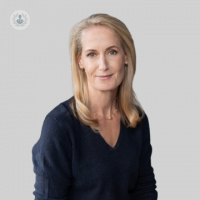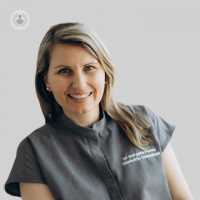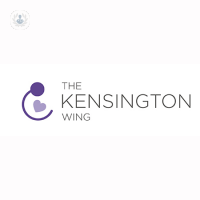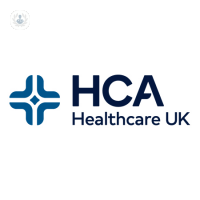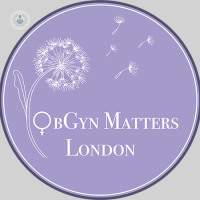
What is antenatal care?
Antenatal care or prenatal care is the care a woman receives while pregnant to ensure that both mother and baby are as healthy as possible. It involves regular check-ups with a doctor or midwife, with scans, screenings, and blood tests to check on the development of the baby and identify any health problems in either mother or child that could cause problems. Pregnancies that are considered high risk may require additional tests or more frequent check-ups.
Mothers-to-be are also offered antenatal classes to prepare them for looking after their baby, such as workshops on breastfeeding.
Why is it done?
Antenatal care is carried out because it is important for the wellbeing of the mother and the baby. During pregnancy, a number of complications can occur for the baby and the mother that can be prevented and avoided by monitoring the development of the foetus.
Regular visits with a doctor or midwife is also useful for providing the expecting mother with useful information about pregnancy, labour, and having a baby, along with advice on how to stay healthy while pregnant. Antenatal care may also involve discussing options for when the baby comes, including making a birth plan.
What does antenatal care consist of?
Antenatal care consists of a series of check-ups, which involve a number of tests. Tests that all pregnant women are offered in England include:
- Two ultrasound scans (one at 8-14 weeks, the other at 18-21 weeks)
- Blood tests – these screen for HIV, hepatitis B, syphilis, etc.
- Screening for certain types of anaemia, including sickle cell and thalassaemia
- Antenatal screening tests for certain conditions, such as Down’s syndrome
Other aspects of the mother’s health, such as blood pressure and weight will be checked regularly, and gynaecological examinations are also performed.
Antenatal care
Mr Christian Barnick - Obstetrics & gynaecology
Created on: 04-25-2014
Updated on: 05-26-2023
Edited by: Aoife Maguire

What is antenatal care?
Antenatal care or prenatal care is the care a woman receives while pregnant to ensure that both mother and baby are as healthy as possible. It involves regular check-ups with a doctor or midwife, with scans, screenings, and blood tests to check on the development of the baby and identify any health problems in either mother or child that could cause problems. Pregnancies that are considered high risk may require additional tests or more frequent check-ups.
Mothers-to-be are also offered antenatal classes to prepare them for looking after their baby, such as workshops on breastfeeding.
Why is it done?
Antenatal care is carried out because it is important for the wellbeing of the mother and the baby. During pregnancy, a number of complications can occur for the baby and the mother that can be prevented and avoided by monitoring the development of the foetus.
Regular visits with a doctor or midwife is also useful for providing the expecting mother with useful information about pregnancy, labour, and having a baby, along with advice on how to stay healthy while pregnant. Antenatal care may also involve discussing options for when the baby comes, including making a birth plan.
What does antenatal care consist of?
Antenatal care consists of a series of check-ups, which involve a number of tests. Tests that all pregnant women are offered in England include:
- Two ultrasound scans (one at 8-14 weeks, the other at 18-21 weeks)
- Blood tests – these screen for HIV, hepatitis B, syphilis, etc.
- Screening for certain types of anaemia, including sickle cell and thalassaemia
- Antenatal screening tests for certain conditions, such as Down’s syndrome
Other aspects of the mother’s health, such as blood pressure and weight will be checked regularly, and gynaecological examinations are also performed.
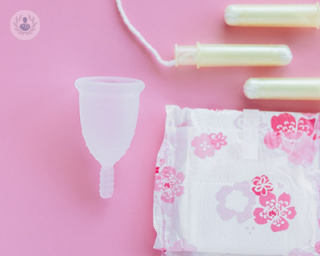

When should you see a doctor about spotting between periods?
By Ms Pushpakala Maharajan
2024-11-20
Bleeding between periods is classified as abnormal menstrual bleeding although it is a relatively common issue. There are a number of causes behind spotting as leading consultant obstetrician and gynaecologist Ms Pushpakala Maharajan explains in this article. She also offers expert insight on how conditions related to spotting are diagnosed. See more


Is Mirena right for me?
By Dr Anusha Dias
2024-11-20
Over the last few decades, the number of contraceptive methods available for women has drastically increased. There are now 15 different options to choose from - so why might you want to choose the Mirena coil? See more


Antenatal care: what every mother-to-be needs to know
By Professor Mina Savvidou
2024-11-19
Antenatal care is an important aspect of every woman’s pregnancy. In her latest article, renowned consultant obstetrician and specialist in fetal maternal medicine Dr Makrina Savvidou explains antenatal care in detail. See more


Planning for childbirth: How to best prepare and alleviate any anxiety
By Dr Spyros Bakalis
2024-11-19
Leading consultant in obstetrics and maternal and fetal medicine Dr Spyros Bakalis gives expert advice for expectant mothers on preparing for childbirth and the weeks to follow in this informative guide. See more
Experts in Antenatal care
-
Dr Vasso Terzidou
Obstetrics & gynaecologyExpert in:
- Antenatal care
- Cervical cerclage
- High-risk pregnancy
- Natural childbirth
- Caesarean
- Premature birth
-
Mr Christian Barnick
Obstetrics & gynaecologyExpert in:
- Endometriosis
- Fibroids
- Hysteroscopy
- Laparoscopy
- Antenatal care
- Caesarean
-
Ms Charlotte Deans
Obstetrics & gynaecologyExpert in:
- Maternal mental health
- Caesarean
- Antenatal care
- Pregnancy
- Early pregnancy
- High-risk pregnancy
-
Dr Gergana Peeva
Obstetrics & gynaecologyExpert in:
- Antenatal care
- Natural childbirth
- High-risk pregnancy
- Caesarean
- Multiple pregnancy
- Fetal medicine
-
Dr Seni Subair
Obstetrics & gynaecologyExpert in:
- Postpartum depression
- Gestational diabetes
- Caesarean
- High-risk pregnancy
- Antenatal care
- Childbirth
- See all

The Kensington Wing - Private Maternity
The Kensington Wing - Private Maternity
Chelsea and Westminster Hospital, 3rd Floor, 369 Fulham Rd., London
No existe teléfono en el centro.
By using the telephone number provided by TOP DOCTORS, you automatically agree to let us use your phone number for statistical and commercial purposes. For further information, read our Privacy Policy
Top Doctors

The Portland Hospital - part of HCA Healthcare
The Portland Hospital - part of HCA Healthcare
205 - 209 Great Portland St. W1W 5AH
No existe teléfono en el centro.
By using the telephone number provided by TOP DOCTORS, you automatically agree to let us use your phone number for statistical and commercial purposes. For further information, read our Privacy Policy
Top Doctors

ObGyn Matters London
ObGyn Matters London
The Portland Hospital, 212 Great Portland Street, W1W 5QN
No existe teléfono en el centro.
By using the telephone number provided by TOP DOCTORS, you automatically agree to let us use your phone number for statistical and commercial purposes. For further information, read our Privacy Policy
Top Doctors
-
The Kensington Wing - Private Maternity
Chelsea and Westminster Hospital, 3rd Floor, 369 Fulham Rd., London , Central LondonExpert in:
- Maternity care
- Ultrasound
- Pregnancy
- Multiple pregnancy
- Obstetrics and Gynaecology
- Pre-eclampsia
-
The Portland Hospital - part of HCA Healthcare
205 - 209 Great Portland St. W1W 5AH, Central LondonExpert in:
- Neurological spinal surgery
- Orthopaedic spinal surgery
- Maternity care
- Pregnancy
- Scoliosis
- In vitro fertilisation (IVF)
-
ObGyn Matters London
The Portland Hospital, 212 Great Portland Street, W1W 5QN, Central LondonExpert in:
- Maternity care
- Diagnostic Imaging
- Endometriosis
- Fibroids
- Obstetrics and Gynaecology
- Women’s health
- See all
- Most viewed diseases, medical tests, and treatments
- Menopause support
- Pelvic ultrasound
- Complex endometriosis
- Maternal mental health
- Nipple discharge
- Minimal access surgery (keyhole surgery)
- Vaginal dryness
- Pelvic pain syndrome
- Preconception care
- Osteoporosis


